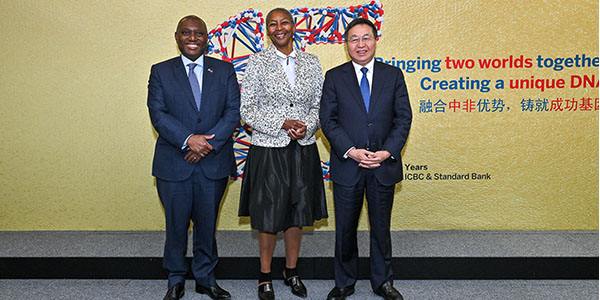
Expediting SA’s COVID-19 recovery
The much talked-about structural reforms have become even more urgent
By Lungisa Fuzile, Chief Executive of Standard Bank South Africa
As the country moves past its COVID-19 peak, South Africa is entering a critical period. We must urgently lay the foundation for the country’s economic recovery by fast-tracking critical structural reforms.
Ratings agencies have been unanimous in expressing their doubt over SA’s ability to stabilise debt as per the plan unveiled by Finance Minister Tito Mboweni earlier this year. While many analysts agree with the rating agencies, a few think that spending cuts totalling just more R100 billion over the remainder of this year are feasible. Notwithstanding the opinions of ratings agencies and analysts, with some hard working, heavy lifting and difficult decisions, it is achievable, and the outcome can be changed.
Government’s own plan suggests that it appreciates the depth and gravity of the problem and the need to act swiftly and decisively to reign in public expenditure. This is necessary not just to appease the rating agencies and analysts, but to convince current and future lenders that SA will continue to be able to service its debt.
SA’s fiscal position had been somewhat weak before the COVID-19 crisis. GDP growth had been decelerating over time, tax collection had fallen below target year after year and public debt had been rising. The pandemic has exacerbated the problem through a cocktail of negative growth, decimated tax collections and massive increases in social spending.
While SA is not the only country affected by the pandemic, countries are going to be differentiated by the conditions that prevailed prior to the crisis and the decisiveness of the responses. SA has had a history of succeeding against odds. What will it take to do it again?
Standard Bank currently expects GDP to contract by 8.5% this year – the deepest recession in around a century – and that unemployment and inequality will continue to rise. GDP contracted a staggering 51% in the second quarter, in the midst of the national lockdown. Even more concerning was the fact that 2.2-million people lost their jobs in the quarter on a net basis.
Yet the country has several things that count in its favour: economic hubs have generally good infrastructure and institutions such as National Treasury and the SARB continue to evince a sound and measured approach towards policy making and enforcement.
It is not an accident that SA’s financial sector continues to be sound and strong. This has been a major plus during this crisis. The banking sector has been the backbone of the SA economy. On its own, and in collaboration with Treasury and the SARB, the sector has acted swiftly to save production capacity in the economy, keep firms operational and save jobs and livelihoods.
Reforms are urgently required
But a lot more is needed in the period ahead to reignite inclusive growth. For such growth to be durable, it must necessarily and appropriately be coupled with deep and meaningful transformation. The much talked-about structural reforms have become even more urgent.
There appears to be a recognition of the need to move towards a new energy supply system that is more competitive. This is a pressing issue, since SA will not be able to grow at a meaningful rate until it has a reliable and affordable supply of energy.
Meanwhile, just as we need fiscal stability, so too is there an urgent need for policy stability and certainty. In our view, policy needs to be more informed by transparent social and economic impact assessments and should be anchored by clear policy targets.
Protracted policy debates on a broad range of fronts have fed uncertainty and caused investors to hold back. For instance, it has hampered the rollout of spectrum to the detriment of connectivity and communication costs. SA must harness its competitiveness on the global stage. Competition is needed in all facets of the economy to enhance SA’s productivity. Investments in skills – including through basic education and vocational training programmes – are also needed to raise productivity and our competitiveness.
The structure and ownership patterns in SA dictate that growing the economy requires cooperation and collaboration between the public and private sectors. Again, one draws inspiration from the abundantly clear convergence between the governing party and business on this matter. So, we can start somewhere and build a durable compact with government leading.
None of this will be easy. Tough choices and trade-offs will have to be made. We will have to give up some things in order to have others. That is what all nations have to confront from time to time. Those that fail to make the tough choices on their own usually have them forced on them by others at an even higher cost and pain.
Acting in unison, we must urgently take steps to expedite the COVID-19 recovery process and set the country on a new path.


